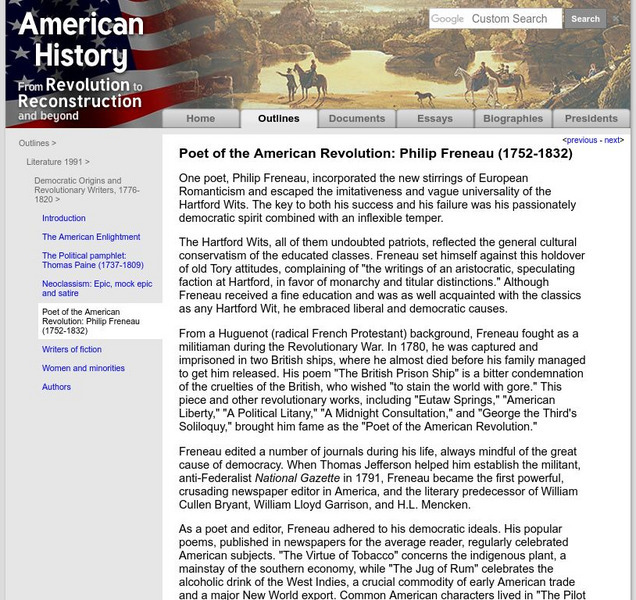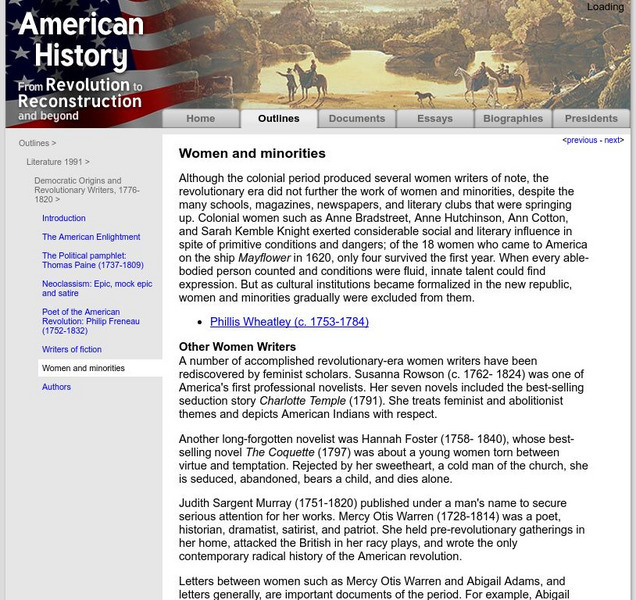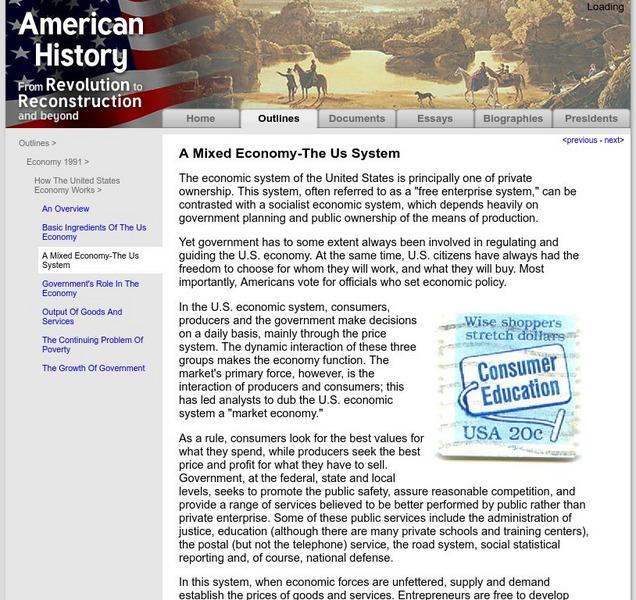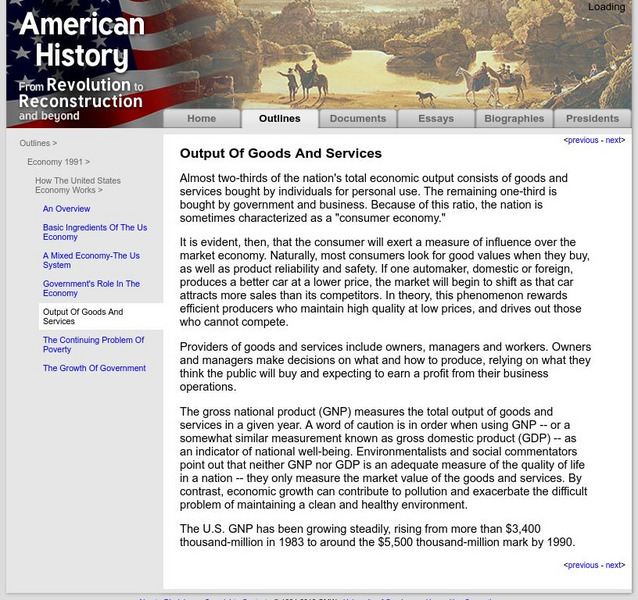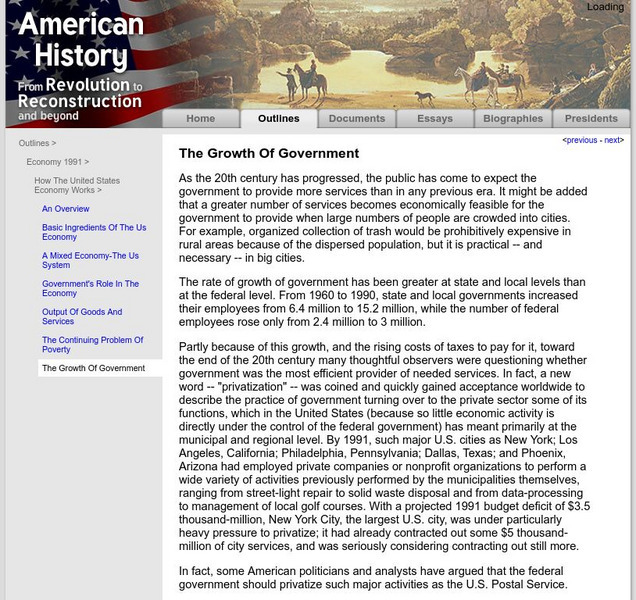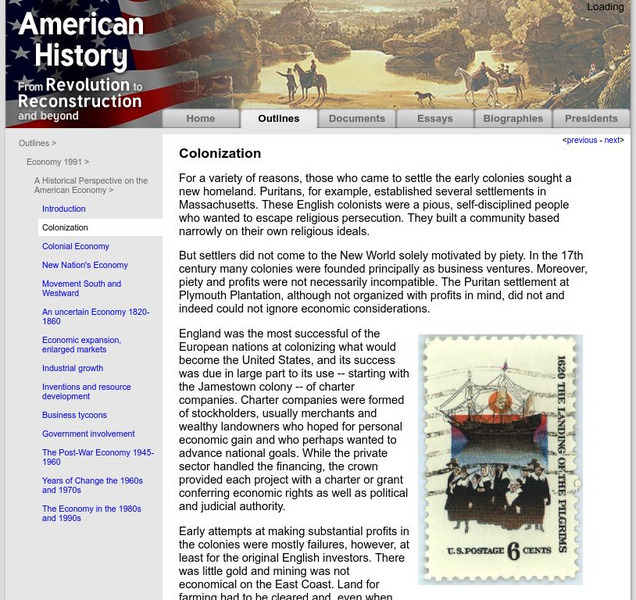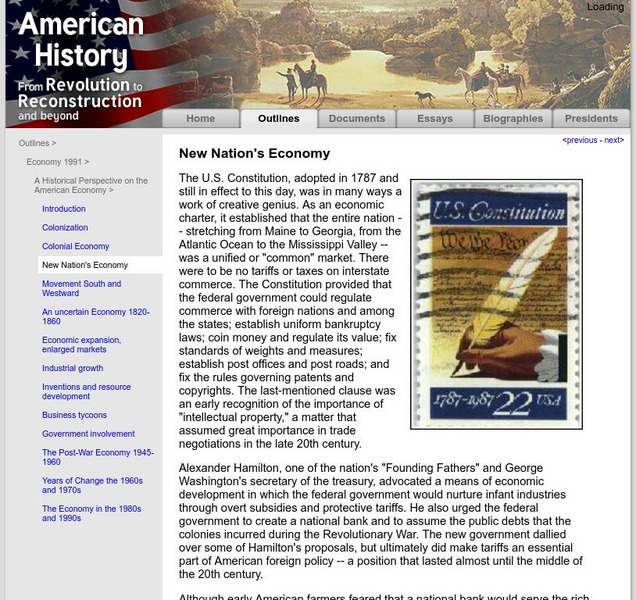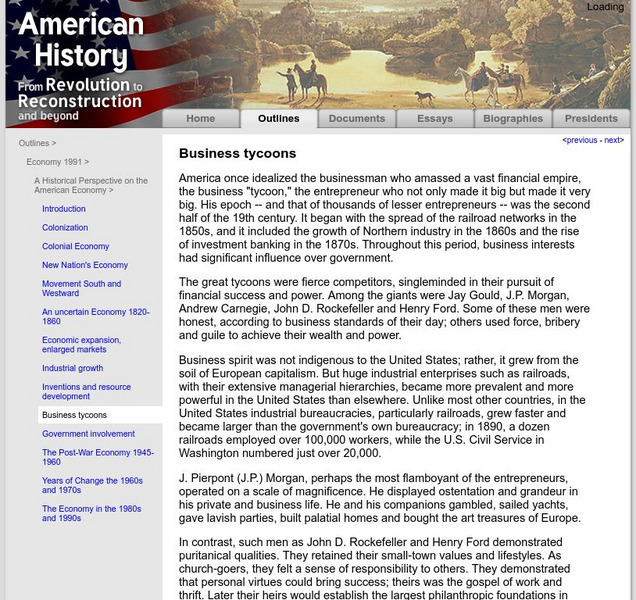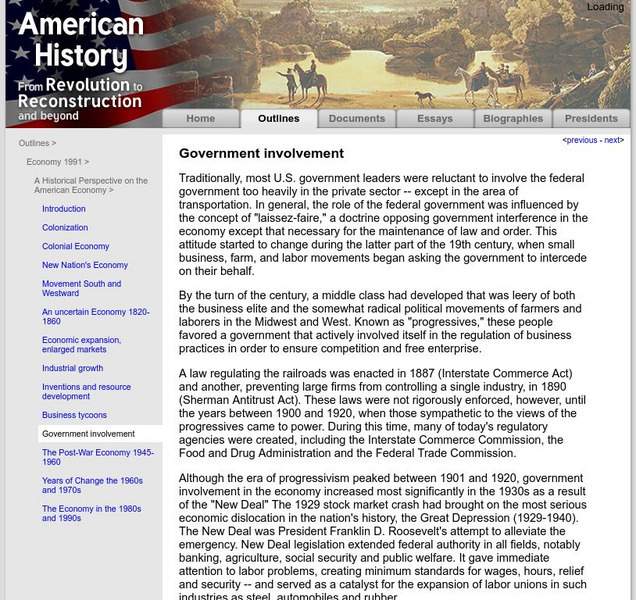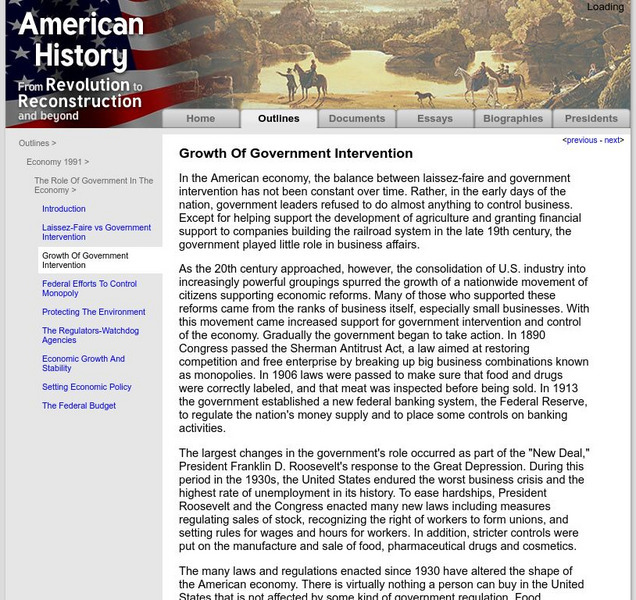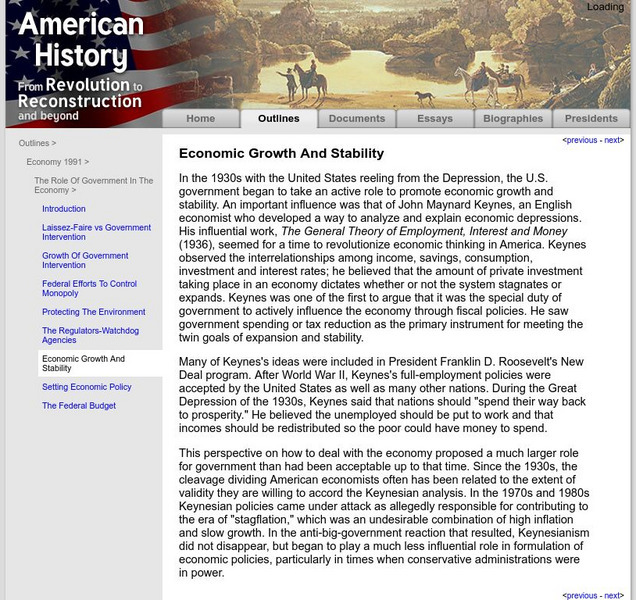University of Groningen
American History: Outlines: The Political Pamphlet: Thomas Paine (1737 1809)
The passion of Revolutionary literature is found in pamphlets, the most popular form of political literature of the day. Over 2,000 pamphlets were published during the Revolution. The pamphlets thrilled patriots and threatened loyalists;...
University of Groningen
American History: Outlines: Neoclassism: Epic, Mock Epic and Satire
Unfortunately, "literary" writing was not as simple and direct as political writing. When trying to write poetry, most educated authors stumbled into the pitfall of elegant neoclassicism. The epic, in particular, exercised a fatal...
University of Groningen
American History: Outlines: Poet of the American Revolution: Philip Freneau
One poet, Philip Freneau, incorporated the new stirrings of European Romanticism and escaped the imitativeness and vague universality of the Hartford Wits. The key to both his success and his failure was his passionately democratic...
University of Groningen
American History: Outlines: Women and Minorities
Although the colonial period produced several women writers of note, the revolutionary era did not further the work of women and minorities, despite the many schools, magazines, newspapers, and literary clubs that were springing up....
University of Groningen
American History: Outlines: A Mixed Economy the Us System
The economic system of the United States is principally one of private ownership. This system, often referred to as a "free enterprise system," can be contrasted with a socialist economic system, which depends heavily on government...
University of Groningen
American History: Outlines: Government's Role in the Economy
While consumers and producers obviously make most decisions that mold the economy, government activities have at least four powerful effects on the U.S. economy.
University of Groningen
American History: Outlines: Output of Goods and Services
Almost two-thirds of the nation's total economic output consists of goods and services bought by individuals for personal use. The remaining one-third is bought by government and business. Because of this ratio, the nation is sometimes...
University of Groningen
American History: Outlines: The Growth of Government
As the 20th century has progressed, the public has come to expect the government to provide more services than in any previous era. It might be added that a greater number of services becomes economically feasible for the government to...
University of Groningen
American History: Outlines: Colonization
For a variety of reasons, those who came to settle the early colonies sought a new homeland. Puritans, for example, established several settlements in Massachusetts. These English colonists were a pious, self-disciplined people who...
University of Groningen
American History: Outlines: New Nation's Economy
The U.S. Constitution, adopted in 1787 and still in effect to this day, was in many ways a work of creative genius. As an economic charter, it established that the entire nation -- stretching from Maine to Georgia, from the Atlantic...
University of Groningen
American History: Outlines: An Uncertain Economy 1820 1860
In the 1820s, America's population was still moving ever westward in search of opportunities and advancement. These people are sometimes depicted as being fiercely independent and strongly opposed to any kind of government control or...
University of Groningen
American History: Outlines: Economic Expansion, Enlarged Markets
The United States was greatly affected by the Industrial Revolution taking place in Europe during the 18th and 19th centuries. New inventions and capital investment led to the creation of new industries and the spread of economic growth....
University of Groningen
American History: Outlines: Industrial Growth
By 1860, when Abraham Lincoln was elected president, 16 percent of the population lived in urban areas and a third of the nation's income came from manufacturing. Funds were flowing into large-scale industrial development and into...
University of Groningen
American History: Outlines: Inventions and Resource Development
Outline of the burgeoning inventions and discoveries that characterized a second industrial revolution in the U.S. during the later half of the 19th Century.
University of Groningen
American History: Outlines: Business Tycoons
Ouline of the blooming business industry and the development of entrepreneurs, big business, and the pursuit of financial success in 19th Century America.
University of Groningen
American History: Outlines: Government Involvement
Ouline of the changing scope of government involvement in the private sector beginning in 19th Century America Progressive Era and reaching its peak during Roosevelt's New Deal programs.
University of Groningen
American History: Outlines: Growth of Government Intervention
Overview of the changing federal government role as it increased involvement and intervention in business and social welfare in the 1900s.
University of Groningen
American History: Outlines: Federal Efforts to Control Monopoly
Overview of government efforts to break up large corporations and monopolies.
University of Groningen
American History: Outlines: Protecting the Environment
Overview of 20th Century Environmental Movement and the domestic policies and government agencies created to protect the environment.
University of Groningen
American History: Outlines: The Regulators Watchdog Agencies
Overview of the many government "watchdog" agencies and regulatory commissions created to regulate or oversee business activity in order to protect public interest.
University of Groningen
American History: Outlines: Economic Growth and Stability
Overview of the early 20th Century, post-depression era period of economic growth and stability brought about by Keynesian economics and the New Deal.
University of Groningen
American History: Outlines: Setting Economic Policy
Overview of the role of the Council of Economic Advisors (CEA) and the Secretary of the Treasury in advising the president on the matters of the U.S. economy and setting economic policy.
University of Groningen
American History: Outlines: The Federal Budget
Overview on the complexities of the federal budgeting process and the Congressional Budget Office (CBO).
University of Groningen
American History: Outlines: The Basis of the American Republic
Overview of the U.S. Constitution as the supreme law of the land enduring through changing times and ever increasing diversity over the last two centuries.




